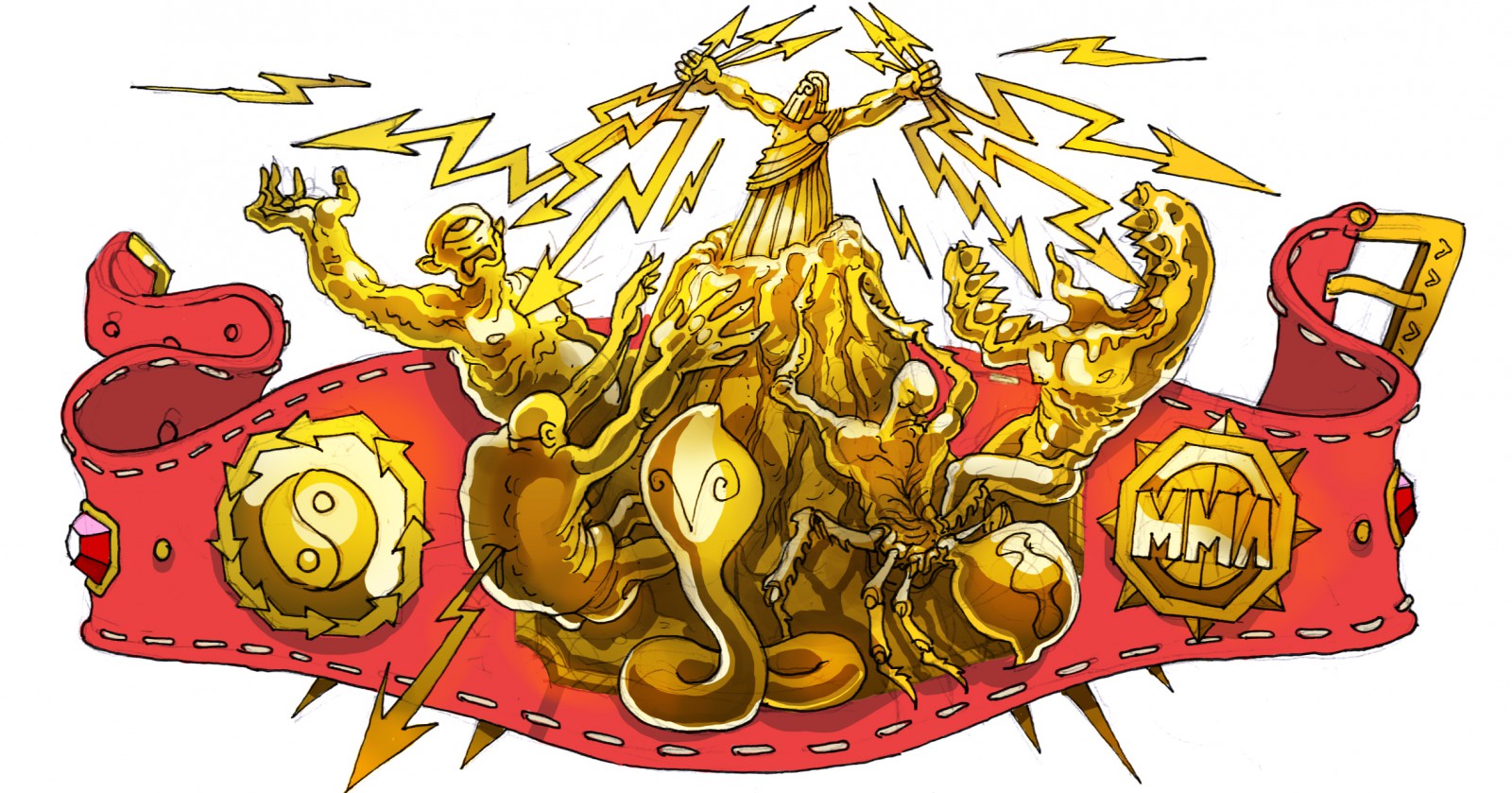
Bruno Althamer | This was to be a clash of the titans14.11.2018
Titanomachy is a clash between gods and titans. The mythical struggle, which ultimately gave birth to a new world order, is said to have taken place aeons before the rise of mankind.
Titans, the forerunners of the gods, have been toppled by their own children. In reality, they were elements that we anthropomorphized in order to create in our consciousness a more consistent, logical account of creation: of the Earth–Gaia beneath our feet and the starry firmament above, resting on the shoulders of unfortunate Atlas.
In our public consciousness, a direct clash between two opposing forces exists as one of the oldest means of solving conflict. It can span a single encounter or be drawn out into a protracted, all-encompassing war. However long, it definitely is the most natural way of pressing one’s arguments. Today, however, open conflict has been replaced with diplomacy and the means of persuasion at its disposal, allowing the proliferation of benefits and arguments. All of it, however, melts in the face of naked physical force. The same old force that moves and shapes mountains, hollows out valleys, or wipes entire cities off the face of the earth. The same force that clocks you in the jaw in a dark alley.
June 21, 2018, Warsaw
This was to be a clash of the titans. At least that was the slogan that the organizers kept echoing. But there was more to it, and everyone seemed to know from the outset that the bout was just a cover for some high-stakes deal. Given the overall context, it’s hard to miss the bout’s mythological struggle aspect, a struggle that started in the early days of history and thus gave birth to the unceasing war over arguments.
There was no way to paint the bout as a clash of good against evil. Let’s say it was more about the benefit of evil forces.
Allegedly, the location of the bout was kept secret until the very last moment. All of the invited guests were supposed to receive a message containing the address only three hours before event. The bout was slated to take place on the night of the summer solstice. Although planned for midnight, by 11pm there was barely any air to breathe inside the venue it was so packed. Absent were the glitz and excitement typical for this type of events, replaced here by thick plumes of cigar smoke swirling under the ceiling and the distinctive sheen of well-used leather jackets. If inspected, the CCTV would reveal that the cage the bout was to take place in sat in some dank basement—a fact attested to by naked piping running under the ceiling and the austerity of the bare concrete walls.
There was no way to paint the bout as a clash of good against evil. Let’s say it was more about the benefit of evil forces. The conflict revolved around the rights to draw profits from rather questionable and shady markets. Both contenders represented the interests of their principals, as Boagrius and Achilles once have.
In the black corner stood the star of the underground—Barabbas. Nearly 130 kilograms of pure physicality. His stocky frame resembled a genetically mutated Angus bull. His skin, covered nearly completely in ink, seemed about to burst from the blood-engorged muscles bulging beneath it. The arteries running along his arms and neck circulated the potent mixture of vitamins, arginine, and pure hatred. Barabbas was his master’s dog, his living experiment, a one-man special task force. A devastating force that only a very stupid man would underestimate. I may have written “man,” but the term felt wrong immediately after I saw it written down. Barabbas was a monster, both physically and mentally. He was managed by a man nicknamed “The Informant” and although he was never seen in public, his presence was somehow always felt by everyone. You could read it off the faces of the assembled crowd, infer it from their conspiratorial whispers sharing hushed rumors of his stake in the bout.
In the white corner stood Piotr Piastowski, a.k.a “Piast.” Lighter by nearly 20 kilograms and younger, he was a promising fighter. The bout was his first professional fight. Piast was a graduate of a car mechanic trade school in Gniezno and has previously worked in his dad’s tire repair shop. After his death, Piast moved to the capital where he quickly found work as a bouncer at the Coco Bongo night club. Back then the club was owned by Marek K., a.k.a. “Kozak,” who later became Piastowski’s manager.
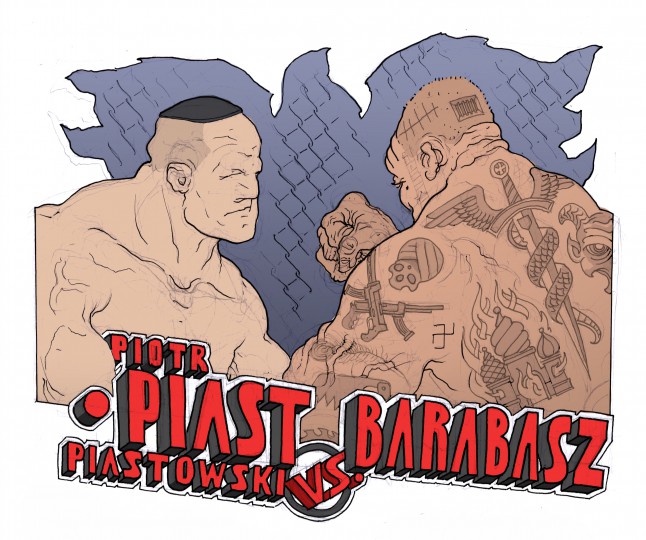
It started out slow. The first bell hushed the crowd into near silence and focused all attention on the probing efforts of both contenders. More glances than blows were really exchanged in the first round. There were a couple of exchanges, true, but none served its purpose. Both fighter seemed to be constantly thinking back to the advice of their coaches, who doubtlessly spent many a sleepless night poring over their opponent’s weaknesses. As a newcomer to the ring, Piast held the advantage because there weren’t really any recordings that would allow anyone to pinpoint weaknesses in his technique. It was common knowledge, on the other hand, that Barabbas should be kept at arm’s length because up close the haymakers he’d be dealing left and right would be lethal.
Round two. Barabbas finally found a hole in his opponent’s guard and his fists finally got a taste of Piast’s soft tissues. Avoiding left hooks, Piast kept pulling back toward the ropes, and countered with a couple of low kicks to the thigh and calf. He did what he could to keep the hulking giant away and prevent the bout from turning into a grappling match as the weight difference between them would then seriously harm his chance of winning. A painful low kick combo quickly convinced Barabbas to close the distance, which then led him to connect a well-placed elbow strike with Piast’s temple. The bell rang out, nearly drowning out the wet thwack of the strike, and probably saved Piast’s life. The ref’s quick reflexes allowed Piast to limp back to his corner, leaving Barabbas standing in the center of the ring. With barely concealed glee, he threw his hands up in the air and let out a couple of animal-like roars at the audience and his dazed opponent.
When the two gladiators rushed each other from across the ring, seemingly throwing all caution to the wind, everyone in the audience stood up in excitement.
The third round is sure to make history. When the two gladiators rushed each other from across the ring, seemingly throwing all caution to the wind, everyone in the audience stood up in excitement. Piast struck first: his right jab smashed right into his opponent’s face. After feigning a quick left, he drove another powerful right jab. The combo was capped with a solid strike from his left leg, the shin smacking into the hulking giant’s side. The response was a harrowing combo of hooks and elbow strikes; not exactly accurate, they nevertheless brought a grimace of pain to Piast’s face. The scene that ensued was rather extraordinary: both contenders started raining each other with blows, tactics be damned, often hitting each other at the same time. This time around, all the blows connected—with the strength of hurtling freight trains, they smashed the fighters’ faces, like meat tenderizers working over thick slabs of pork cutlets. The withering blows would not only change the spheres of influence commanded by the grey eminences controlling the show, but the fates of the contenders themselves. Their awareness of the gravity of their exchange seemed to further fuel the passion with which they kept hitting each other long after the entire place fell absolutely silent. The symphony of the final combo resounded unmarred by any other noise. A deep right hook in the solar plexus, a left jab to the chin, and then a terrifyingly beautiful coup de grâce: a clean right hook to the jawline, which sent Barabbas crumpling to the mat. The dozen or so hammer punches that landed on what remained of his face were nothing but a formality.
Aside from being a brutal yet fascinating spectacle, the fight was actually a manifestation of the necessary confrontation between two diametrically opposite forces. The inevitable result of two discrete entities with irreconcilable opposing positions. Just like the clash between Kronos and Zeus gave rise to new principles governing their coexistence, so did the Barabbas and Piast give birth to a new order. The new has replaced the old. Out of the chaos of the brawl, a new power emerged—a force heretofore unknown, stepping up to take the reins. It’s still too early to say, but it seems everything will be alright.
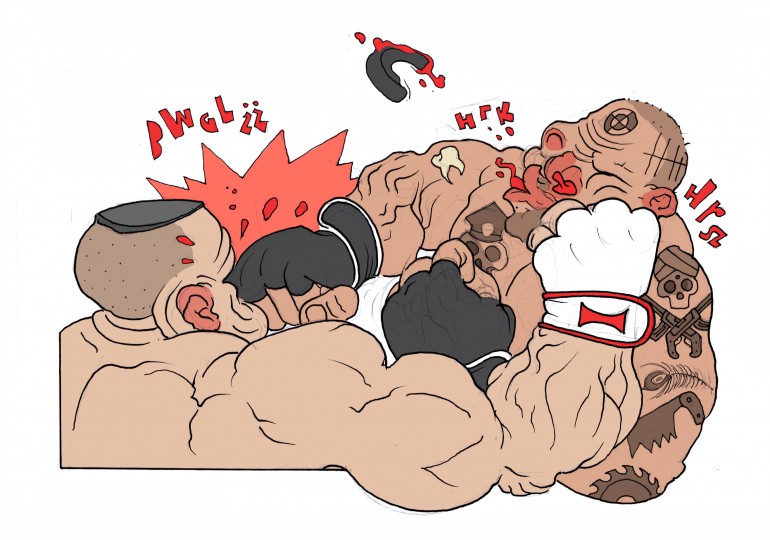
Epilogue: Victory.
Sometimes, a victory only marks the beginning of another fight. Sometimes, it brings about precisely what we tried to avoid by deciding to fight it out in the first place. Piast went off the grid. Allegedly, someone saw him a month ago in a Gniezno supermarket, loading up his cart with all the tofu they had in the store. Others that his dad’s shop is illuminated every night by the telltale blue blaze of the arc welder. To quote his neighbor: “All he does is weld and drill holes in something all night long. The noise in unbearable!”
And Barabbas? Well. After spending the next couple of months recuperating, he stepped back into the ring, a living symbol of the unwanted past. The tattoos adorning his physique, once a mark of glory and triumph, were now a mere reminder of utter defeat. Not even his frequent YouTube uploads, which showed him announcing his intentions to crush this and crush that, could help him rebuild his image. The only crowds his subsequent bouts were able to assemble were mostly made up of people who showed up to see his ugly mug. Regardless of the outcome, each miserable spectacle usually ended with the audience throwing peanuts at the rings and booing poor Barabbas into oblivion.
Make of this what you will.
see also
- Bruno Althamer | The Ruffian Cometh
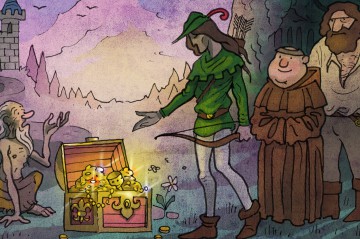
Opinions
Bruno Althamer | The Ruffian Cometh
- Make Home Feel Like the Office. "The Sound of Colleagues" is Peak Home Office Experience

News
Make Home Feel Like the Office. "The Sound of Colleagues" is Peak Home Office Experience
- Women’s Stories – Take a Stand on an Important Issue in Papaya Young Directors vol. 8
 Papaya Young Directors
Papaya Young DirectorsNews
Women’s Stories – Take a Stand on an Important Issue in Papaya Young Directors vol. 8
- Popular Coffee Species Facing Extinction

News
Popular Coffee Species Facing Extinction
discover playlists
-
Paul Thomas Anderson
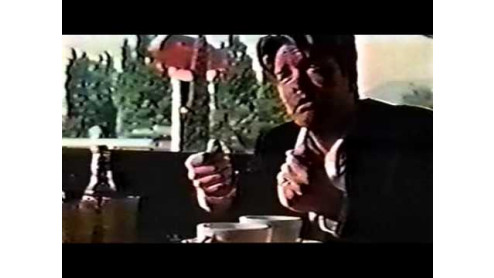 02
02Paul Thomas Anderson
-
Inspiracje
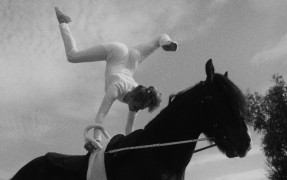 01
01Inspiracje
-
David Michôd
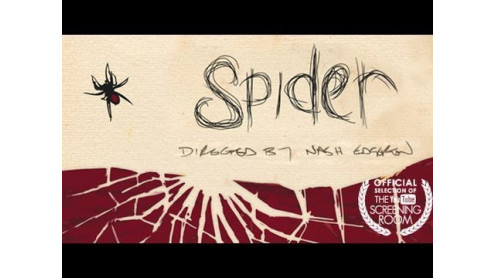 03
03David Michôd
-
Domowe koncerty Global Citizen One World: Together at Home
 13
13Domowe koncerty Global Citizen One World: Together at Home
